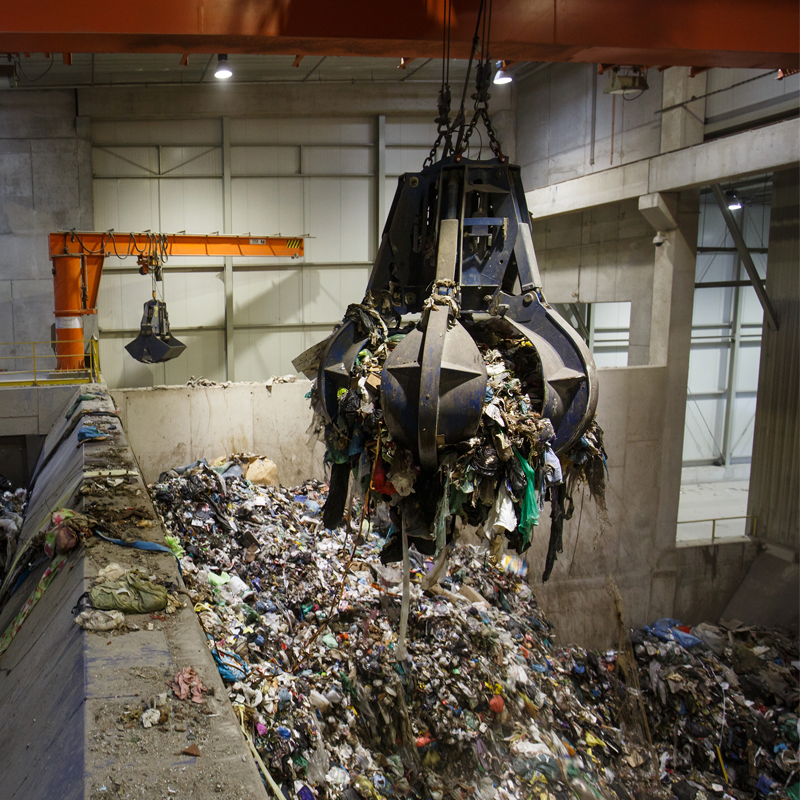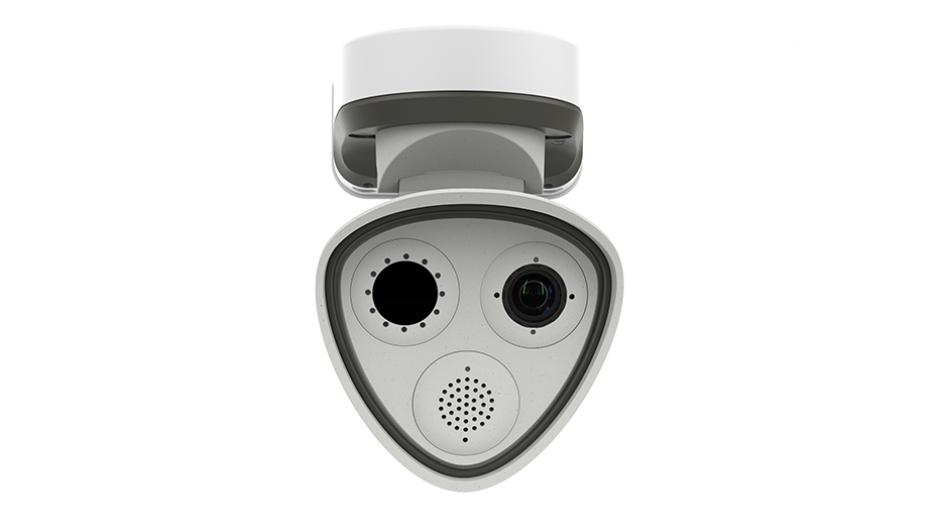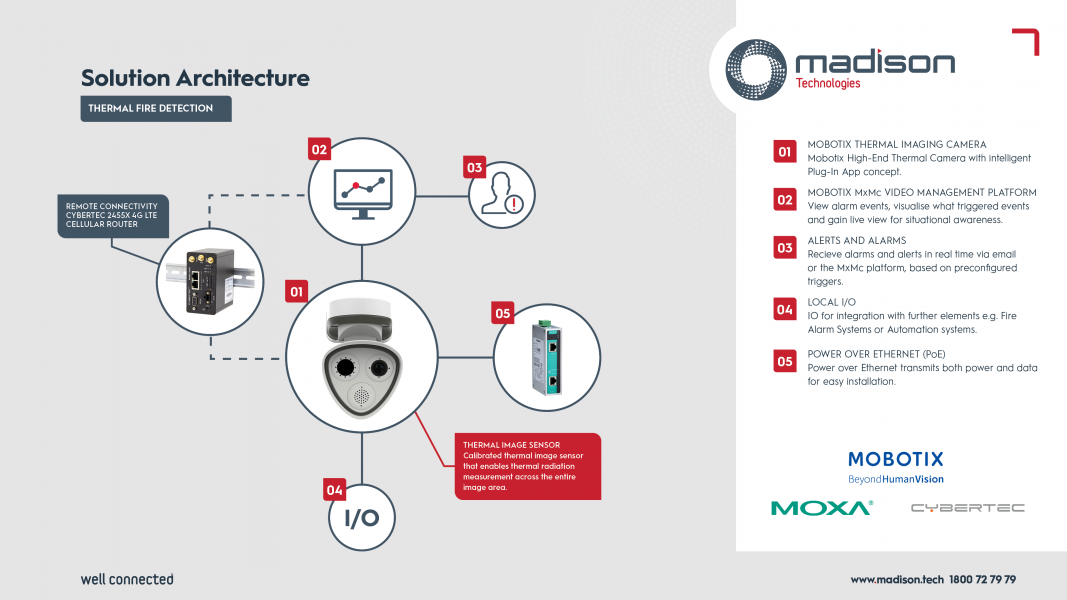The Need
The waste industry is seeing a sharp increase in waste fires on garbage trucks and in waste facilities. Across Australia, more than 450 fires have been linked to lithium-ion batteries between mid 2021 and early 2023.
Australia waste management companies are experiencing challenges with fires caused by improperly disposed batteries, especially lithium-ion batteries, which often inadvertently end up in household waste and pose a constant potential risk for landfill sites.
Despite the best efforts of waste management companies to collect and process hazardous waste, batteries that are not disposed of correctly can ignite and create dangerous fires. This poses a threat to the safety of workers, the local community, and the environment as the risk of fire remains and the company needs to be prepared to manage breakouts with the least impact to operations.


The Solution
When it comes to lithium-ion batteries, being able to immediately detect rising temperatures is crucial. A characteristic feature of lithium-ion batteries is their high energy density. Thermal runaway poses a particular risk of battery fires since this kind of chain reaction takes less than 60 seconds from start to explosion. These temperature variations are often not visible to the naked eye or by purely visual monitoring.
The Mobotix M73 cameras with thermal radiometry technology, along with calibrated, industry-standard, high-end thermal sensors were selected to solve the challenge the waste management company was facing.
The M73 cameras and high-end thermal sensors measure thermal radiation throughout the entire imaging area, and assign a temperature value for each pixel, giving detailed real-time data measurements. The solution also allows up to 20 different temperature events to be configured simultaneously in thermal radiometry windows or over the complete sensor image with a temperature range from -40°C to 550°C. With real-time monitoring, any temperature fluctuations outside of the parameters set in the cameras immediately trigger alarms, enabling staff the opportunity to take action and stop the thermal runaway before it becomes a fire.
Solution Overview
